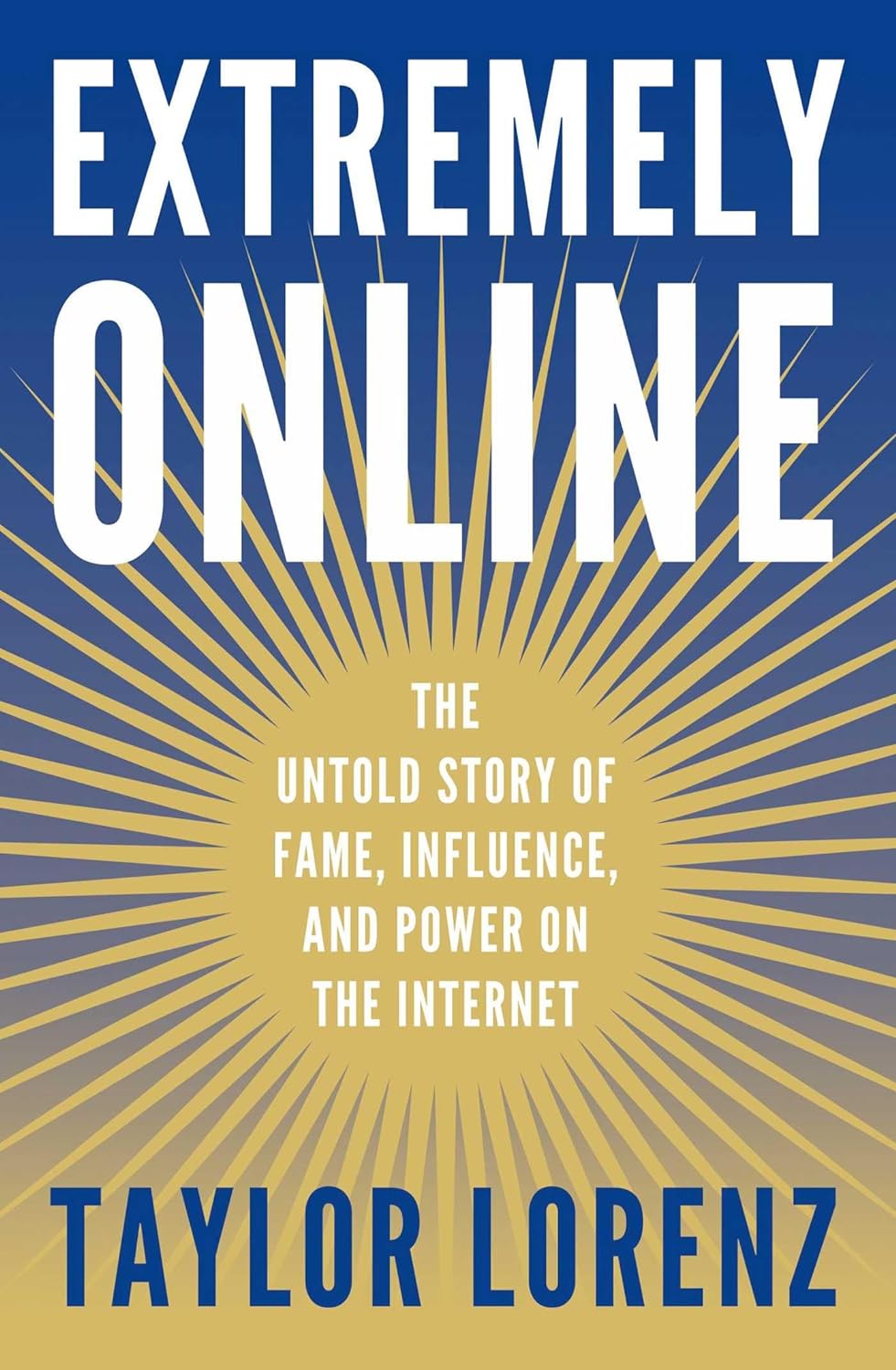Book Review: Extremely Online: The Untold Story of Fame, Influence, and Power on the Internet
by Grace Grocholski

Technology and culture reporter, Taylor Lorenz, assesses the internet of the past twenty years from the perspective of the creators—users who fundamentally changed the way we interact with technology. She points out that the development of Big Tech, which has been exhaustively documented, is only half of the story. Innovation occurs not just with the founders of these platforms, but also with the users who revolutionize these spaces. She begins this story with the upset that was the blog “Socialite Ranking”, which she examines as a precursor to social media as we know it today. The blog was dedicated to catty gossip of New York high society, run by two unknowns who made the site as a social experiment. The ranking was vicious and had real-world consequences for those propelled to its top standing. Before it imploded, the site helped usher in fame for a select few. The major upset that this seemingly inconsequential blog had on the New York social scene was unprecedented and set the stage for many upsets to come. Lorenz is clear to write that this is not a comprehensive history of the internet, but rather a partial catalog of its social history.
From here, Lorenz highlights the unexpected users of large platforms—from YouTube, Facebook, Twitter, Instagram, TikTok, and more—who rose in popularity and power and shifted the way the platforms operated. Influence began in the days of the early internet, with the rise of blogs, and in particular “the mommy blog”. Women who wrote within this space also pioneered the partnership with advertisers, altering the way people interacted with the sites. “The right mommy blogger could reach hundreds or thousands of consumers with the click of a button”. These women commodified themselves and their lifestyles online, posting candidly and monetizing that disclosure, in a way that was novel at the time (but seems very familiar today). These early bloggers found internet fame and success, establishing a playbook that would come to repeat itself again and again on newer platforms.
There are many familiar faces throughout the book’s chapters: MySpace star Tila Tequila, Adam Bahner of “Chocolate Rain” fame, the infamous feline Grumpy Cat, Vine celebs Cameron Dallas and Nash Grier, TikTok’s D’Emilio sisters— to name just a few. Lorenz details the success of these creators and how they revolutionized their chosen platforms and gained attention and notoriety. It’s worth understanding these trends and the people that go viral, monopolizing our increasingly fleeting attention.
Along the way, tech executives realized they needed to work with creators to ensure the success of their platforms. Revenue sharing became commonplace, where advertising gains were split between the creators and the companies that ran the platform. Social media became its own economy and top creators wielded tremendous influence. The “creator economy” can do business untraditionally: in addition to marketing an already developed product, “creators build an audience and develop products tailored to the fans they already have”. Creators also disrupt legacy media publications by dominating the digital space with their own content.
The landscape of the internet is continually evolving, most recently with the introduction of AI. As much as Lorenz details the rise of specific internet hubs and the individual users who paved the way for others to find success, she also charts the fall of these media platforms (notably including a chapter on the dissolution of Vine). The boom and bust cycle then repeats with another and another. These trends in use and popularity weave together into a colorful tapestry of people and creators, and the myriad ways individuals connect with one another in the digital realm. Lorenz neatly sums up her project in her epilogue, calling people to action against the consolidated power of Big Tech, in favor of the actions and content of the collective. “The online world is sprawling, beautiful, and endless,” Lorenz writes. It will continue to be shaped by each of us.
Grace Grocholski is a part-time librarian, full-time bookworm. In her spare time, she enjoys running, baking, and feeding her online chess addiction.




